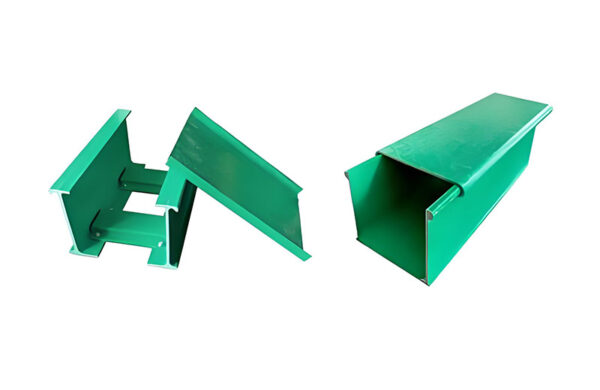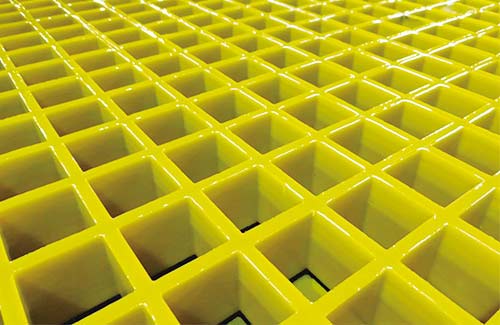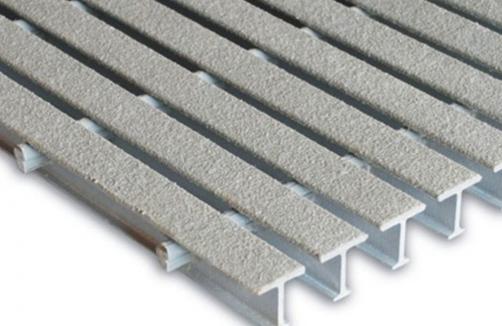Viga I FRP para plantas de procesamiento de alimentos: La elección ideal para las modernas instalaciones de procesamiento de alimentos
Introducción
Las instalaciones de procesamiento de alimentos requieren materiales de construcción resistentes, higiénicos y duraderos para garantizar la eficacia, la seguridad y el cumplimiento de las normas del sector. Entre estos materiales, las vigas en I de polímero reforzado con fibra (PRFV) han surgido como una opción superior para las modernas plantas de procesamiento de alimentos. Pero, ¿qué hace que las vigas en I de FRP sean la solución ideal? ¿Cómo se comparan con los materiales tradicionales? ¿Qué ventajas ofrecen en términos de higiene, longevidad y rentabilidad? Este artículo explora estas cuestiones y explica por qué las vigas en I de PRFV se están convirtiendo en la opción preferida para las instalaciones de procesamiento de alimentos.
¿Por qué elegir vigas en I de FRP para plantas de procesamiento de alimentos?
Higiene y saneamiento

Una de las principales preocupaciones en las plantas de procesamiento de alimentos es mantener altos niveles de higiene. Los materiales tradicionales, como el acero, pueden oxidarse, albergar bacterias y requerir un mantenimiento frecuente. En cambio, las vigas en I de FRP no son porosas, son resistentes a la corrosión y fáciles de limpiar. Esto las convierte en una opción excelente para entornos en los que la limpieza es primordial.
Durabilidad y longevidad
Las instalaciones de procesamiento de alimentos están sometidas a cargas pesadas, temperaturas extremas y un uso constante. Las vigas en I de FRP están diseñadas para soportar estas condiciones sin degradarse. A diferencia del acero, que puede debilitarse con el tiempo, las vigas de FRP mantienen su integridad estructural, garantizando la fiabilidad a largo plazo y reduciendo la necesidad de sustituciones frecuentes.
Ligero y resistente
Las vigas en I de FRP son mucho más ligeras que las vigas de acero tradicionales, lo que simplifica su instalación y reduce la carga sobre las estructuras de soporte. A pesar de su ligereza, ofrecen una resistencia excepcional, lo que las hace ideales para aplicaciones con grandes cargas sin comprometer el rendimiento.
Resistencia química
Las plantas de procesamiento de alimentos suelen utilizar productos químicos agresivos para la limpieza y la desinfección. Las vigas en I de FRP son muy resistentes a una amplia gama de productos químicos, como ácidos, álcalis y disolventes. Esta resistencia química garantiza que las vigas no se vean afectadas por la exposición a estas sustancias, manteniendo la integridad estructural y la seguridad.
Preguntas frecuentes
¿Es el FRP más rentable que los materiales tradicionales?
Aunque el coste inicial de las vigas en I de FRP puede ser superior al del acero, sus ventajas a largo plazo las convierten en una solución rentable. La reducción del mantenimiento, la mayor vida útil y los menores costes de sustitución contribuyen al ahorro global. Además, la naturaleza ligera del FRP reduce los costes de instalación, lo que aumenta aún más su rentabilidad.
¿Pueden las vigas en I de FRP cumplir las normas de seguridad alimentaria?
Absolutamente. Las vigas en I de FRP están diseñadas para cumplir las estrictas normas de seguridad alimentaria, lo que garantiza que no filtren sustancias nocivas en los productos alimenticios. Su superficie no porosa también impide la proliferación de bacterias y moho, manteniendo un entorno seguro.
¿Son las vigas en I de FRP respetuosas con el medio ambiente?
Sí, las vigas en I de FRP son una opción respetuosa con el medio ambiente. Están fabricadas con materiales reciclables y tienen una vida útil más larga, lo que reduce la necesidad de sustituciones frecuentes. A diferencia del acero, que requiere procesos de producción que consumen mucha energía, la fabricación con PRFV tiene una menor huella de carbono, por lo que es una opción sostenible para las instalaciones con conciencia ecológica.
Compartir ideas
Si participa en el diseño o la construcción de plantas de procesamiento de alimentos, tenga en cuenta las numerosas ventajas de las vigas en I de FRP. Su combinación de higiene, durabilidad, diseño ligero y resistencia química las convierte en la opción ideal para las modernas instalaciones de procesamiento de alimentos. Al elegir vigas en I de FRP, puede mejorar la eficiencia, la seguridad y la sostenibilidad de sus instalaciones al tiempo que reduce los costes a largo plazo.
Conclusión
Las vigas en I de FRP ofrecen multitud de ventajas que las convierten en la opción ideal para las plantas de procesamiento de alimentos. Desde la mejora de la higiene y la durabilidad hasta la rentabilidad y la sostenibilidad medioambiental, estas vigas ofrecen una solución integral para las modernas instalaciones de procesamiento de alimentos. En este artículo se abordan las preguntas más habituales y se comparte información sobre los motivos por los que las vigas en I de PRFV se están convirtiendo en el material preferido para construir y modernizar plantas de procesamiento de alimentos. Haga una elección inteligente: considere las vigas en I de FRP para su próximo proyecto de procesamiento de alimentos.







